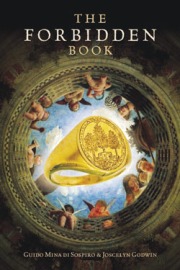In the tradition of astrology each planet is assigned a set of associations which it governs. On a personal level these are said to affect every aspect of a person’s life, from love to employment, death to birth, and even the emotional state of the individual dependent on the planetary alignments active at any one time. These associations are also said to affect the fortune and fate of nations.
While today many offer explanations based on gravity or magnetic forces, these concepts are foreign to the origins of the traditions of astrology. In the ancient system these correspondences were explained in terms of music. The Pythagorean concept of Musica Universalis, the harmony of the spheres, assigns harmonic correspondences to each of the planets, and their effect on earthly affairs was understood quite literally in terms of the affected dancing to the tune of the stars.
If you consider the practical implications of this theory of correspondences it becomes rather overwhelming. To take just one example, each ingredient in the food you eat has a corresponding planet, the time it was cooked does as well, as does the person who cooked it. The time the ingredient was prepared, whether slaughtered or picked, has a correspondence, as does the person who slaughtered or picked it, and the time it was born or planted has a correspondence. All of the implements used to cook the food have similar correspondences relating to their material make up, the person who made them, time they were bought, etc. This also affects the time that you ate it, your own correspondence to the planetary influences, and in the end becomes a very complicated mathematical problem whose solution equates to the effect that the food has on your fate.
We don’t need any acquiescence to the efficacy of astrology to see how, with very little adjustment, this is a wonderful analogy for subliminal marketing and propaganda techniques. When we raise the level of influence up to the stars we are forced to take a holistic look at how things come about from potential to action. In some ways it provides an early example of the kind of global control that individuals and groups now have thanks to satellite technology (See Paul Virilio’s wonderful book Open Sky for more on how our perceptual field affects social governance.)
In bringing to England more advanced cartographic and navigation techniques based on the understanding of astronomy and astrology at the time, the mathematician, and Elizabethan Magus, John Dee was able to help the expansion of the British Empire. Looking into the history of these ideas, we find that those who were most talented in theorizing their execution were also aware that this process was more complicated, and culturally attuned, than a cursory skeptical understanding would permit.
Within this system it was thought that a skillful and knowledgeable Adept was capable of using harmonic correspondences and ratios as a model to control events and individuals, what in common parlance is known as magic. As Cornelius Agrippa put it:
” This place doth require that we speak of Magic; for it is so near joined to, and of affinity with Astrology, in so much that he that professes Magic without Astrology, doth nothing, but altogether is in an error. “
The medieval philosopher Giordano Bruno in his treatise On Magic discusses the means by which a magician can manipulate these correspondences. Today Bruno is best known for being burned at the stake as a heretic for his views on the nature of reality, however his writings on magic provide some of the most precise and unobfuscated examinations of the true nature of the practice.
When we speak of ‘sorcery’ or call someone a ‘sorcerer’ we are directly referencing this ability to manipulate fate and fortune, as these terms come from the Latin term sortiarius which means “one who influences, fate, fortune.” The sorcerer is one who, through the manipulation of these planetary correspondences, or bonds, can change the course of fate, from it’s natural movement within the Harmony of the Spheres, to the harmony conducted by the sorcerer’s will.
“Everything desires to remain in its present state of existence and does not comprehend, or even think about, any other new state of being. Therefore, there is, in general, a bonding of reciprocal love of a soul for its own body, and of that body (in its own way) for its soul. Thus, the diversity of natures and drives gives rise to a variety of bonds which affect both spirits and bodies…
Let us now turn our attention to the many bonds between spirits. This is where the whole teaching of magic is to be found.
1. The first bond which ties spirits together is general in character and is represented metaphorically by the three-headed Cerberus of Trivia, the doorkeeper of hell. This is the triple power which is needed by one who binds, i.e., by the magician: namely, physics, mathematics and metaphysics. The first is the base; the second is the scale; the third is the summit of the scale. The first explains active and passive principles in general; the second explains times, places and numbers; the third explains universal principles and causes. This is a triple cord which is difficult to break.
2. The second bond is also triple and is needed in the agent, in the action and in the thing on which the agent acts. It consists of faith or credibility, of invocations, of love and of strong emotions in the application of the active to the passive. The role of the soul is to produce changes in the body of the composite, and the role of the body is to change the soul materially. If these bondings do not happen, or especially if they are not present, then no amount of attention or motion or agitation will produce any results. For a magician is most fortunate if many believe in him, and if he commands great persuasion.
3. The third bond, which is the source of effectiveness, is the number of the principles, which are distributed according to the four sectors of the universe and which are needed for actions which occur in the heavens and in nature. In addition, there are other principles needed for volitional and preternatural effects, but they do not have a specific location.
4. The fourth bond is the soul of the world, or the spirit of the universe,
which connects and unites everything with everything else. As a result,
everything has access to everything else, as was said above.5. The fifth bond is the souls of the stars and the principles of places, of the
winds and of the elements.6. The souls of demons which preside over times, days, storms and the
elements themselves.7. The souls of men who are tyrants and rulers, and of those who have
acquired some degree of fame and thus have become spirits.8. The divine names and the names of the divine orders.
9. Markings and symbols.
10. Strong invocations and supplications to make the power of the superior overcome that of the inferior, for example, to banish evil demons by good ones, and to banish lower evil demons by higher ones. These demons are enticed by sacrifices and holocausts; they are frightened by threats, and they are summoned by the powers of inflowing rays of light.
11. By the power of the threefold world: elementary, celestial and intellectual.
12. The disposition to ask good things from good people, for example,
chastity, honesty, purification and abstinence.13. The adoption of cults and natural things in which there reside spirits
which are similar to those required for actions.14. The assessment of cults according to their different qualities.
15. The force of consecration which comes from perseverance, from prayer
and from rituals.16. A knowledge of feast days and of the days and hours of good and bad
luck.17. A knowledge of the different objects and methods found in religious
observations in regard to the purity of their locations, and in regard to
ablutions, contacts, endings, clothing, incensing and sacrifices.18. The use of active and passive powers, for example, in the first or nearly
first elements, and in stones, metals, plants and animals, in accordance with
fourteen conditions.19. Rings.
20. The techniques of enchantment.”
The very name of the film is expressive of a magical purpose, in the truest sense of the word, the manipulation of fate and fortune by the active Will of an individual or group of individuals acting under an ideology. Will triumphant over fortune, the sorcerer’s control over the Harmony of the Spheres.
To take only a few items from Bruno’s list, we find the Swastika, the powerful focal point of Nazi ideology fits within category 9, the knowledge of signs and symbols. With the volks and “back to nature” movements we find item 13, “ The adoption of cults and natural things in which there reside spirits which are similar to those required for actions.” In the S.S. and associated orders within the Nazi regime we find number 14, “the assessment of cults according to their different qualities,” and of course in the speech itself, held in ritualistic fashion using paraphenalia of the Roman Empire, we have numbers 15 and 16.
To continue through the list would be a bit futile, and the reader will find it perhaps more fitting to do their own meditation on these items to see how one of the world’s most tragic examples of political sorcery fits into Bruno’s schema. When we step outside the suffocating influence of superstitious rationalism, it becomes much easier to understand how systems like Nazism are able to gain such a strong foothold in culture. We don’t even need psychoanalytic ideas, or Reichian musings on fascism for that matter, to tease out the subtle mechanisms, it’s actually all very practical and straight forward. Bruno’s system is not some historical cast off, it’s a surprisingly efficacious, and contemporary, model of social influence.
It also sheds light on areas that may, in some sense, seem more innocuous, if no less lethal the the truth. Let’s take a look at someone who we would normally only jokingly (or polemically) reference in light of something like Nazism, the popular American evangelist Billy Graham:
In this clip, taken from a revival held in 1957, one is immediately struck with the superficial similarity between the 20th century’s most notorious dictator and one of the world’s most respected religious leaders.
These superficial similarities in fact lead deeper into the issue, as rite and ritual are themselves the ‘exoteric,’ or outward manifestation, of an ‘esoteric’ force. In these similarities we see the outward manifestations necessary for the sorcerer to pull the bonds he seeks to manipulate by Will. In this case, the minds of the devotees that sit in rapt attention. The frantic gesticulations of the evangelist are the movements of a composer conducting a concert whose music consists in the emotional harmonies of his audience.
Can we be so bold as to say this of a religious evangelist? Yes, if the evangelist is merely a person using the ritual image of a religious tradition as an efficient means to an alternate end. Giordano Bruno points out in item 17, the skillful manipulator must have ” knowledge of the different objects and methods found in religious observations in regard to the purity of their locations, and in regard to ablutions, contacts, endings, clothing, incensing and sacrifices.”
Reflecting on Graham’s apprenticeship to evangelizing, Bob Shuster of the Billy Graham Center Archives states:
There were to be many, many refinements in years to come, but most of the basic elements were in place, built not only on his own experiences, but also on the collective experience and practice of centuries of Trans-Atlantic interdenominational evangelism. Graham and his coworkers were to perfect an existing system and adapt it to the age of radio, television and satellites.
At Charlotte, too, talking for the hometown papers, he had begun to reflect on his experiences so far.“I learned to look straight at them. Say I am reaching to an audience of three or four thousand. I can look straight at them and I can tell when a man way in the back blinks his eyes. When he does that, I know it is time for a change of pace or I’ll lose some of the people. That’s what I’ve trained my voice for. It’s a change of pace that’s the secret.”
“I Learned to Look Straight at Them.”
The Apprenticeship of Billy Graham, 1937-1949(Expanded version of the Treasures of Wheaton Presentation by Bob Shuster of the Billy Graham Center Archives, May 9, 2009)
Now that we can begin to develop a better understanding for how a leading figure in the world of Christian Evangelicalism can be considered a sorcerer (which is probably less surprising these days than it once might have been,) let us step away from Bruno for a moment, while continuing our quest to understand this process.
How can it be that someone whose outward appearance is so carefully constructed to piety could hide in their heart an alternative intention. A.E. Waite in his Book of Black Magic and Pacts provides a very clear explanation:
“The attempt to propitiate the Deity by means of prayers, sacrifices, and abstinence, and thus obtain the Divine assistance for the successful consummation of hideous offenses and preposterous or impossible undertakings, is, of course, madness; for the God acknowledged and invoked by Goetic Magic is not the Principe of Evil, as the myth of Modern Satanism supposes, but the observance followed in reality from the interpretation placed by “terrible and venerable Deity” who destroyed the power of the rebellious angels, the Jehovah of the Jewish rituals and the Trinity of the Christian magical cycle. The insane observance followed in reality from the interpretation placed by Goetic Theurgy on the fundamental doctrine of practical magic, namely, the power of Divine words to compel the obedience of all spirits to those who could pronounce them. Collections of these words and names were recited as invoking and binding forms, and, incorporated into a suitable setting of official prayers, were used in all magical ceremonies. Black Magic was simply their application to unlawful purposes.
The utterance of the Divine Name, which was supposed to make the devils tremble and place them at the will of the Magus, was at least equally powerful, it was argued, to enforce their obedience for a purpose in consonance with their own nature. Then seeing that prayer to God and the invocation of the Divine Names presupposes a proper Spirit of reverence, devotion, and love as the condition upon which prayer is heard, it became a condition in Goetia. The first impossibility required of the adept in Black Magic is therefore that he should love God before he bewitches his neighbor; that he should put all his hopes in God before he makes a pact with Satan; that, in a word, he should be in good order to do evil.”
Let’s continue to avoid the superstitious rationalism that plagues contemporary discussions of magic, and keep a clear view of the natural basis for these observations. Waite’s analysis of Goetia is predicated by how it was seen at the time in the circles that he frequented, and his own understanding of magic, it isn’t a very good definition of what Goetic practice actually is, but it is a good analogy for what is going on when these things are applied to social systems.
The “devils” that tremble before the Divine Name, in one sense, are the various particular aspects of what in Arabic is referred to as the “naf,” or unrefined animal nature. In the case of Graham, and the politicized religious tradition that he works within, we have a perfect practical application of creating a problem in order to introduce a predetermined solution.
By invoking these ‘devils’ with impassioned speeches playing on the fears, inadequacies and expectations of his devotees, Graham is able to control them through invocations of God, and manipulate them to his will. You have the devil of anger riding you, who can help you? God. How do you get to God? Jesus. How do you get to Jesus? The evangelist is here to tell you the way. You’re three steps out from the Man buddy, but the Evangelist can get you what you need.
Another meaning to the Arabic term ‘naf’ is ‘ego’, and these fears, inadequacies and expectations are all based on an ego still centered in the Self. The folks who go to a revival are seeking a refining of their ego, and they provide the perfect opportunity for a skillful manipulator to work; a fertile ground to sow, grow and reap a garden attuned to the will of the sorcerer. If there is doubt as to what purpose such a garden might serve, don’t forget that Billy Graham has been an adviser to every president starting with Harry Truman and continuing on through to the current U.S. president. This isn’t to imply conspiracy, merely that religion outside of the Truth has always served the purpose of political factions, and individual ideologies, rather than the positive development of it’s devotees.
Looking at the 20th skill on Bruno’s list, ‘the techniques of enchantment,’ we find another word whose common understanding strips it of the meaning it holds in this context. Enchanment comes from ‘in cantare,’ which means roughly to ‘sing into.’ If we look at this in conjunction with all of the items on the list we can see that in a certain sense what is implied by ‘sing into’ is the ability to lead the person, or persons, the sorcerer is seeking to affect into a predetermined narrative that ends with the sorcerer’s will being fulfilled.
Here we can find a number of different applications. If we think of a ballad, they usually have a standard story arch. In one sense to enchant is to bring someone into this story arch, whose denouement is already predetermined, and fits the intent of the sorcerer. In another sense to enchant is to literally infect the person with the ‘tune,’ so that they are forced to ‘dance’ their way through the story. In other words, it describes the means by which one fulfills the necessary steps for the problem/solution dialectic to play out.
There’s no need to look very far to see how this is a real force in the contemporary world. Just look at any music genre that has a corresponding social scene. It’s not hard to market to a group whose tastes are sculpted by artists who are all invoking the same visual, narrative and emotional aesthetics. Nor is it difficult, once this is established, to guide that group by slowly introducing new elements into the familiar pattern. Even better for the sorcerers, if you get the person while they are young to invest in this process, as they grow up their trusted memories will be cued to music that you already know, so 40 years on you can still influence them through invoking nostalgia by tying the most popular songs of their youth to product placement or social movements.
Using terminology that reflects music we have both a nod back to the idea of Universal Harmonies, as well as some practical advice on how to start the process since, within the classic system, each emotion and mental state has a corresponding note or tone, which in turn matches up to the planetary associations. This makes it easy when you’re working in a cultural system that follows all of the rules, but ditch the planets, and the system of correspondences, you still have a clue that it might be a good idea to look into how a culture reacts to specific rhythms, sound stimuli, and narrative patterns, and this is just taking the term enchantment at its most literal.
“One who is born in Imagination discovers the latent forces of Nature. Besides the stars that are established, there is yet another – Imagination – that begets a new Star and a new Heaven.” ~ Paracelsus
It’s a convenient support for the current “scientific” worldview to consider Girodano Bruno’s martyrdom as a fevered reaction by the religious authorities of the time to his support for the heliocentric theories of the universe. This, however, ignores the fact that his conception of the universe was based on an infinite expanse, something closer to Ibn-Arabi’s ‘ocean without shore.’ It takes a very willful ignorance of the cultural setting Bruno was working in, and Bruno’s philosophy as dictated through his writing, to think that Bruno was some kind of proto-scientific martyr, unless the science we’re talking about is a strange combination of Transpersonal Psychology and bleeding edge physics. More than the threat of science, Bruno’s writing exposed the mechanisms of politicized religious ideology, and it’s power to manipulate the social order. There is a reason, according to some, that the London School of Economics assigns his De vinculis in genere (Of Bonding in General) to it’s students.
His writing clearly lays out the methodology through which a self centered imagination can usurp the Musica Universalis to beget “a new Star and a new Heaven” in line with a false ideology. Giordano Bruno’s crime was not that of the rational scientist against the irrational order, it was the crime of one who is no criminal except in the eyes of the true criminals who seek to manipulate innocents that put their trust in ‘magical’ authority.
Bruno was a whistle blower on a universal scale, cluing the marks in on the fact that they are easy pawns in a con game played at a ‘celestial’ level, by people who understand mass psychology better than the most adept marketer the corporate world has today. So rather than lament the influence of corporations, or some abstract elite, look a bit higher to the realization that for all the strings they can pull, it’s still you who has yet to follow the Socratic maxim to “know thy self,” and step out from under the influence of the stars which can be used to set the tune for a sorcerer’s devotion.
“So I will come to put you on trial. I will be quick to testify against sorcerers, adulterers and perjurers, against those who defraud laborers of their wages, who oppress the widows and the fatherless, and deprive the foreigners among you of justice, but do not fear me,” says the LORD Almighty.”
– Malachi 3:5
Note: Thanks to Khem Caigan for inadvertently providing the quotes from Cornelius Agrippa and Paracelsus that helped guide this essay along.

 “For debased souls religion is a yoke imposed, through self-interest, by the poltrooneries of fear and the follies of hope. For exalted souls religion is a force, springing from an intensified reliance in the love of humanity.
“For debased souls religion is a yoke imposed, through self-interest, by the poltrooneries of fear and the follies of hope. For exalted souls religion is a force, springing from an intensified reliance in the love of humanity.












